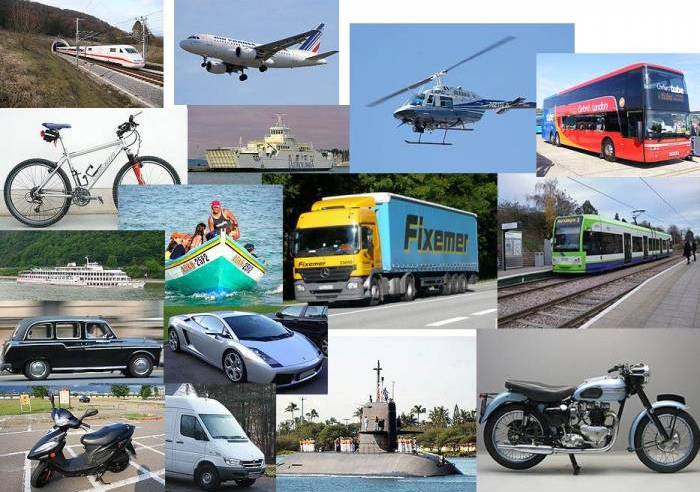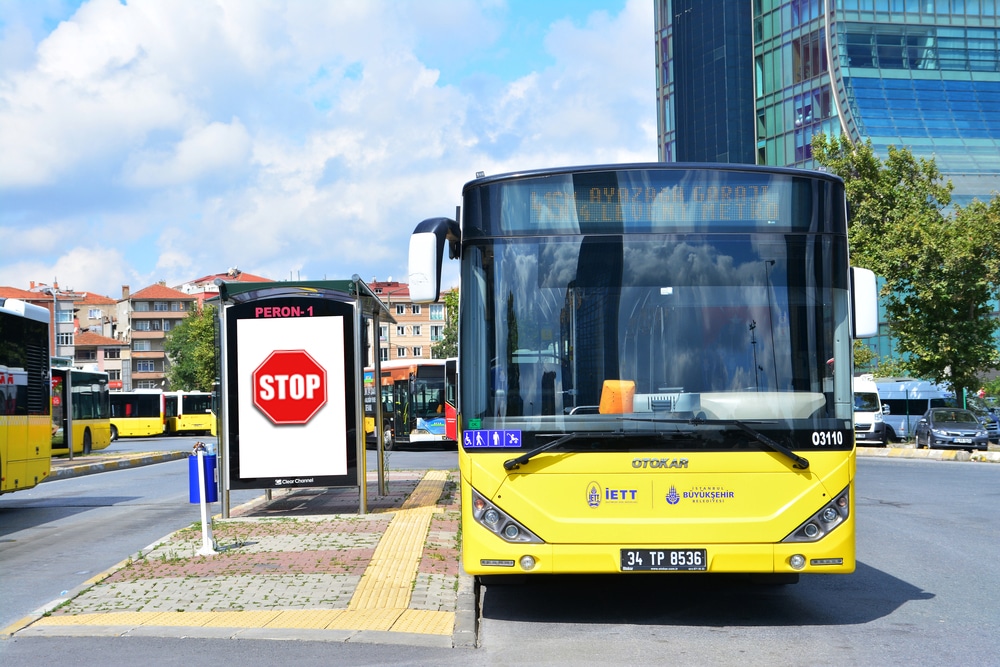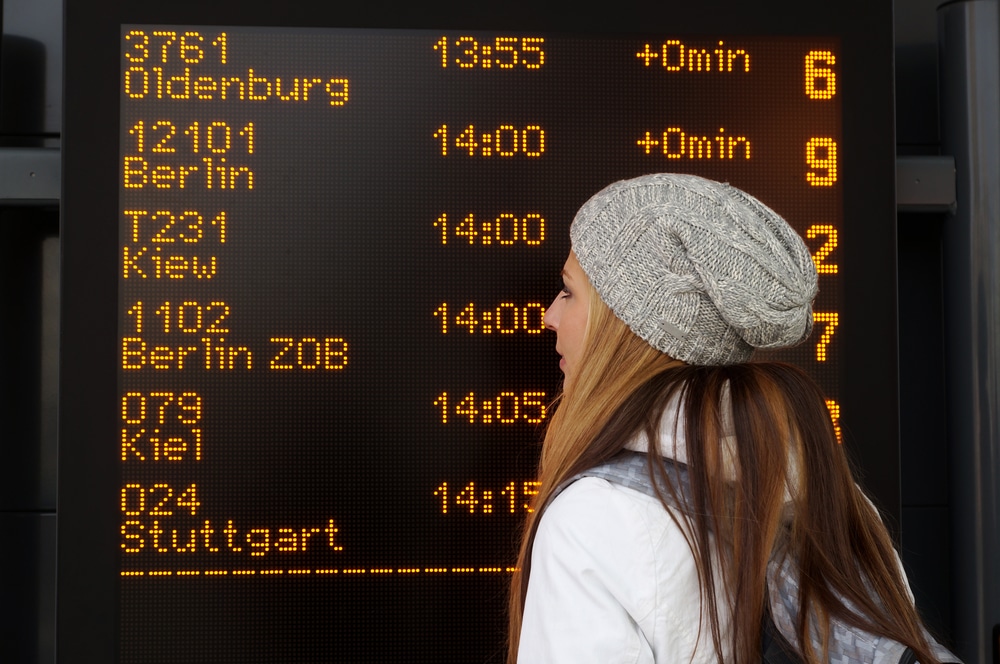
60 Transportation Words in Spanish with Audio and Example Sentences
Transportation—well—takes you places. It’s the buses, trains, cars, boats and airplanes that get you from Madrid to Buenos Aires, from Tulum to Mallorca.
So it’s good to have the transportation vocabulary in Spanish down. After all, you don’t want to get lost not knowing how to ask which train goes where, or what time the bus arrives.
Read on for a thorough list of 60 transportation terms in Spanish, plus a list of handy travel phrases to use in a pinch.
Contents
Download: This blog post is available as a convenient and portable PDF that you can take anywhere. Click here to get a copy. (Download)
Modes of Transportation
Thanks to this first section, you will be able to learn how to name the different means of transportation in Spanish. Enjoy your ride!
1. avión — airplane
2. tren — train
But do you know how to say “railroad” in Spanish? Ferrocarril! From ferrum (iron) and carril (track, rail).
3. auto / coche / carro — car/automobile
These three words all mean “car.” However, they come from different languages and are used to mean different things:
- Auto, short for automóvil (automobile), comes from Greek, auto- (self), and Latin, mobilis (movable).
- Coche comes from Hungarian, kocsi, which was a four-wheeled wagon.
- Carro is derived from Latin carrus, which was a two-wheeled, horse-drawn chariot. Carro can also mean “wagon.”
When it comes to their use, coche is the word you would use in Spain to mean “car.” Auto is understood but very seldom used, and carro is used to mean “cart” or “carriage.”
In Latin America, my sources tell me that all of these terms are used and easily understood, however carro is the most common option, and coche tends to mean “stroller.”
4. autobús / autocar — bus
“Bus” is one of those words that can be said in many different ways depending on the country you are traveling to. If you want to check how to say this word when visiting a specific country, have a look at this list of slang for bus in different countries.
5. taxi — taxi
When in Spain, look for taxis with a green light. That means they are libres (free, available). If the light is red, they are ocupados (busy, taken).
6. camión / camioneta — truck
A camión is a standard truck or big rig, a camioneta is normally a pick-up truck or a light truck.
7. motocicleta / moto — motorcycle/motorbike
Moto is just an abbreviation, and much more common than the longer motocicleta.
8. bicicleta / bici — bicycle/bike
The same happens with the words bicicleta and bici, both of which mean, of course, bicycle. Bici is the abbreviation of bicicleta. The younger you are, the more often you use the shorter form, though!
9. barco / bote — boat
A barco is bigger than a bote.
10. helicóptero — helicopter
And how do you say “heliport?” Helipuerto! (Yes, a port is a puerto).
11. ambulancia — ambulance
12. barco de vela — sailboat
Not many of us are taking sailboats around as transportation, but if you are, good for you, amigo.
13. cohete — rocket
This word can also mean “fireworks” in its plural form.
14. transbordador espacial — space shuttle
I am almost sure you will not be taking the space shuttle every day, but just in case, now you know what to call it in Spanish.
15. aerodeslizador — hovercraft
16. metro — subway
One notable Spanish exception of this term is in Buenos Aires, where they call their subway system the Subte.
17. tranvía — tram/streetcar
Public Transportation
It is time to learn a few words regarding public transportation. They will help you find your way around the city!
18. billete — ticket/fare
Other ways of saying billete, especially in Latin America, are pasaje, tiquete or boleto.
19. oficina de información — information center
This can also be called oficina de atención al viajero, which could be translated as “Travel information center.”
20. salida / llegada — departure/arrival
These terms derive from the infinitives salir (leave, set off) and llegar (arrive), respectively.
21. horario — schedule
22. andén — platform/track
The word andén can have different meanings, but when it comes to transportation, it means track or platform:
El tren sale del andén 5. (The train leaves from track 5.)
23. parada — stop (of a bus/train/tram/metro)
24. vía — train track
25. mapa — map
Keep in mind that mapa, though it looks feminine, is actually a masculine noun: el mapa. This is because it’s a shortened version of a masculine noun—el mapamundi.
26. viaje — trip/journey
Remember the infinitive form is viajar (to travel).
27. pasajero — passenger
28. conductor — driver
Here we have a false friend! The English word “conductor” is translated as “director de orquesta,” that is, an orchestra conductor.
29. equipaje — baggage
Do you know how we say “hand baggage?” The answer is easy: equipaje de mano.
30. clase — class
When you buy your tickets, remember to mention if you want primera clase (first class), segunda clase (second class), clase turista (economy class) or clase ejecutiva/preferente (business class).
31. línea — line/route
32. vagón — carriage/coach (of a train)
Here you have another false friend, because the English word “wagon” is translated as carro, as we saw before.
33. ventanilla / pasillo — window seat/aisle seat
Ventanilla literally means “small window,” and it refers to a window seat. Pasillo means “corridor, aisle,” and it refers to an aisle seat.
34. coger / tomar el autobús — catch/take the bus
Watch out, because the verb coger can have a very vulgar meaning in South America!
35. subir / bajar — get on/get off
These two verbs have many different meanings, and they can be used when referring to almost every means of transport.
36. conducir / manejar — to drive
Conducir is used in Spain, while manejar is used in Latin America.
37. estación de ferrocarril — train station
38. estación de metro — subway station
39. taquilla — ticket office
A taquilla is the place where you buy your billetes.
At the Airport
Traveling does not necessarily mean you have to use the plane, but if you are planning to visit a Spanish-speaking country, it is more than likely that you will be traveling by air.
Here you have some words that will come in handy when in an airport:
40. aeropuerto — airport
This one is obvious, but necessary. How else can you tell your taxi driver “Please, take me to the airport?” By saying:
Por favor, lléveme al aeropuerto.
41. puerta — gate
42. terminal — terminal
43. recogida de equipaje — baggage claim
44. embarque / embarcar — boarding/to board
45. tarjeta de embarque — boarding pass
46. sala de embarque — boarding lounge
47. despegar / aterrizar — to take off/to land
48. billete de avión — plane ticket
49. piloto — pilot
50. auxiliar de vuelo — flight attendants
We used to have azafatas (stewardesses). Now we are more sensitive about our language, so we have flight attendants.
51. retraso — delay
52. aerolínea — airline
Useful Expressions
So… learning words is fun, and sometimes even easy! But you would not travel too far by using just single words.
Learn the following expressions and you will be able to get the info you need whenever you need it:
53. ¿A qué hora sale / llega…? — What does does … depart/arrive?
Use this with trains, buses, subways and streetcars:
¿A qué hora llega el siguiente autobús? (What time does the next bus arrive?)
54. ¿A qué hora aterriza / despega…? — What time does … take off/land?
Use this when referring to planes:
¿A qué hora aterriza tu avión? (What time does your plane land?)
55. ¿Cuánto tiempo dura el viaje? — How long does the journey take?
56. ¿Cuál es la próxima parada? — What is the next stop?
57. ¿Con qué autobús / tren / metro puedo llegar a…? — Which bus/train/subway line can I take so I can arrive to … ?
58. ¿Es este el autobús / tren / metro que llega a…? — Can I get to … with this bus/train/subway?
59. ¿Cuánto cuesta el billete? — How much is the ticket?
60. ¿Dónde puedo comprar un billete? — Where can I buy a ticket?
There you go: 60 useful words and expressions you can use when traveling to a Spanish-speaking country, planning your holidays, talking to your Spanish friends about your last trip, etc. I am sure these words will be more than enough to help you solve any problem or doubt you can have when dealing with transport in Spanish.
Consider this a starting point and add as many words as you want to this list until you feel you have everything you need for your next trip. Pair the list with the FluentU program for contextual learning and the natural discovery of even more useful Spanish vocabulary words.
FluentU takes authentic videos—like music videos, movie trailers, news and inspiring talks—and turns them into personalized language learning lessons.
You can try FluentU for free for 2 weeks. Check out the website or download the iOS app or Android app.
P.S. Click here to take advantage of our current sale! (Expires at the end of this month)

Happy travels!
Download: This blog post is available as a convenient and portable PDF that you can take anywhere. Click here to get a copy. (Download)
And One More Thing…
If you've made it this far that means you probably enjoy learning Spanish with engaging material and will then love FluentU.
Other sites use scripted content. FluentU uses a natural approach that helps you ease into the Spanish language and culture over time. You’ll learn Spanish as it’s actually spoken by real people.
FluentU has a wide variety of videos, as you can see here:

FluentU brings native videos within reach with interactive transcripts. You can tap on any word to look it up instantly. Every definition has examples that have been written to help you understand how the word is used. If you see an interesting word you don’t know, you can add it to a vocab list.

Review a complete interactive transcript under the Dialogue tab, and find words and phrases listed under Vocab.

Learn all the vocabulary in any video with FluentU’s robust learning engine. Swipe left or right to see more examples of the word you’re on.

The best part is that FluentU keeps track of the vocabulary that you’re learning, and gives you extra practice with difficult words. It'll even remind you when it’s time to review what you’ve learned. Every learner has a truly personalized experience, even if they’re learning with the same video.
Start using the FluentU website on your computer or tablet or, better yet, download the FluentU app from the iTunes or Google Play store. Click here to take advantage of our current sale! (Expires at the end of this month.)











